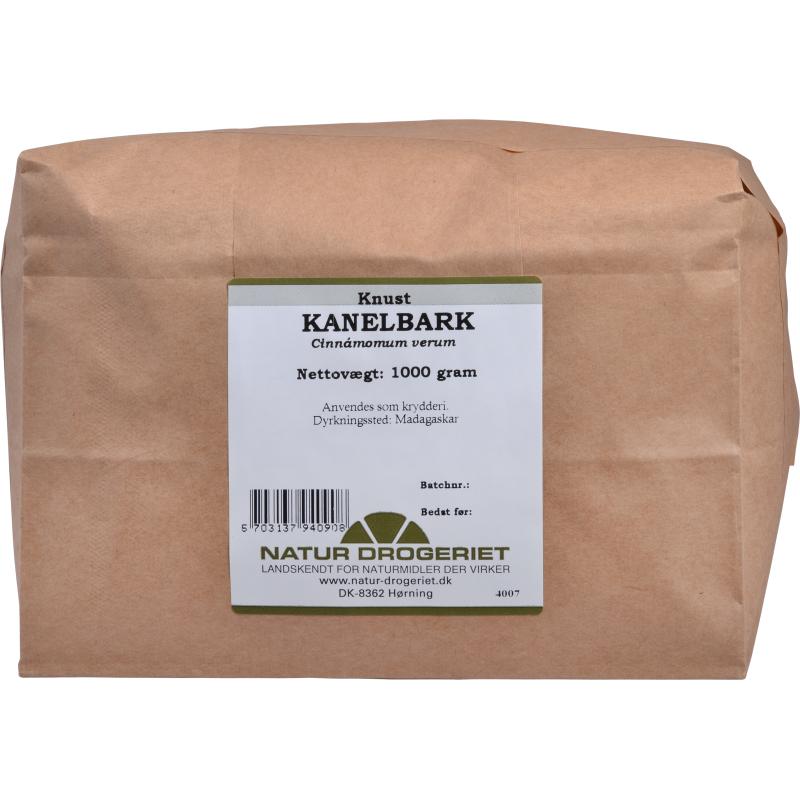Kanelbark knust
Food
- Crushed cinnamon bark
- Used as a culinary spice
Recommended use:. Use as a culinary spice.
Basically, there are two types of cinnamon: Ceylon (or true) cinnamon and Chinese cinnamon. Cinnamon contains coumarin, a substance that may damage your liver in high doses. The coumarin content of Ceylon cinnamon is far lower than that of Chinese cinnamon - so if you plan on using major amounts of cinnamon, you may want to choose the Ceylon cultivar.
Ceylon cinnamon comes from the Cinnamomum verum tree, native to Sri Lanka. However, the Ceylon cinnamon sold by Natur-Drogeriet primarily comes from Madagascar.
The parts used as a culinary spice are extracted from the inner bark of the tree. Sticks are formed when the bark is sun-dried, causing it to roll up on itself. Ceylon cinnamon has a strong, sweet and aromatic taste - in contrast to Chinese cinnamon which is milder and has a slightly nutty taste.
In Western countries, cinnamon is primarily used to add flavour to desserts, cakes and cookies and for sprinkling (with sugar) on porridge. However, it is also excellent with meat, fish, vegetables, rice and beans. It is a delicious ingredient in tea mixes, its scent reminding us of Christmas.
Cinnamon sticks are often used in stews and casseroles with bean, rice, chili and fruit - or used for mulled wine and tea. Indians often stir-fry a cinnamon stick, cloves and peppercorns with onion and rice.
Crushed Ceylon cinnamon bark (Cinnamomum verum)
